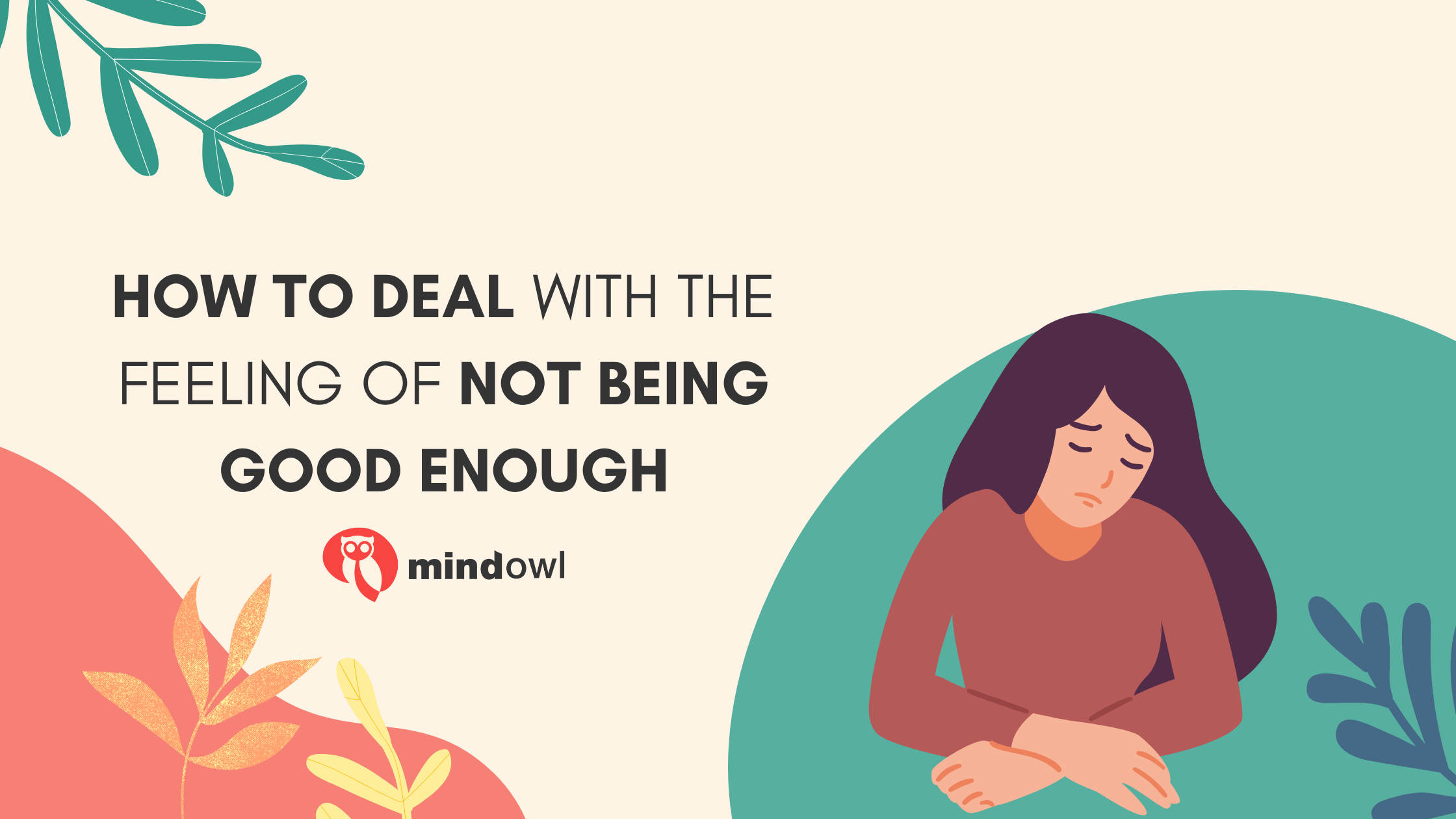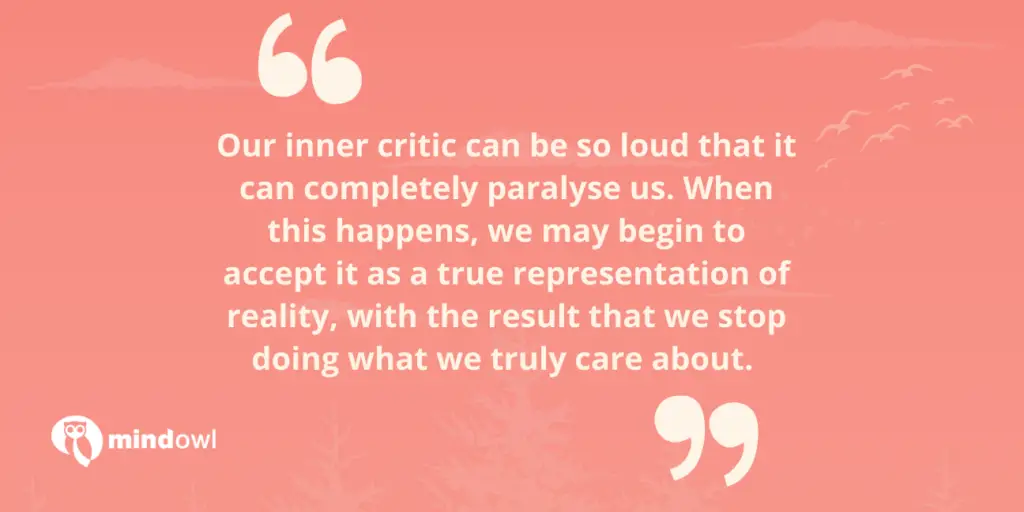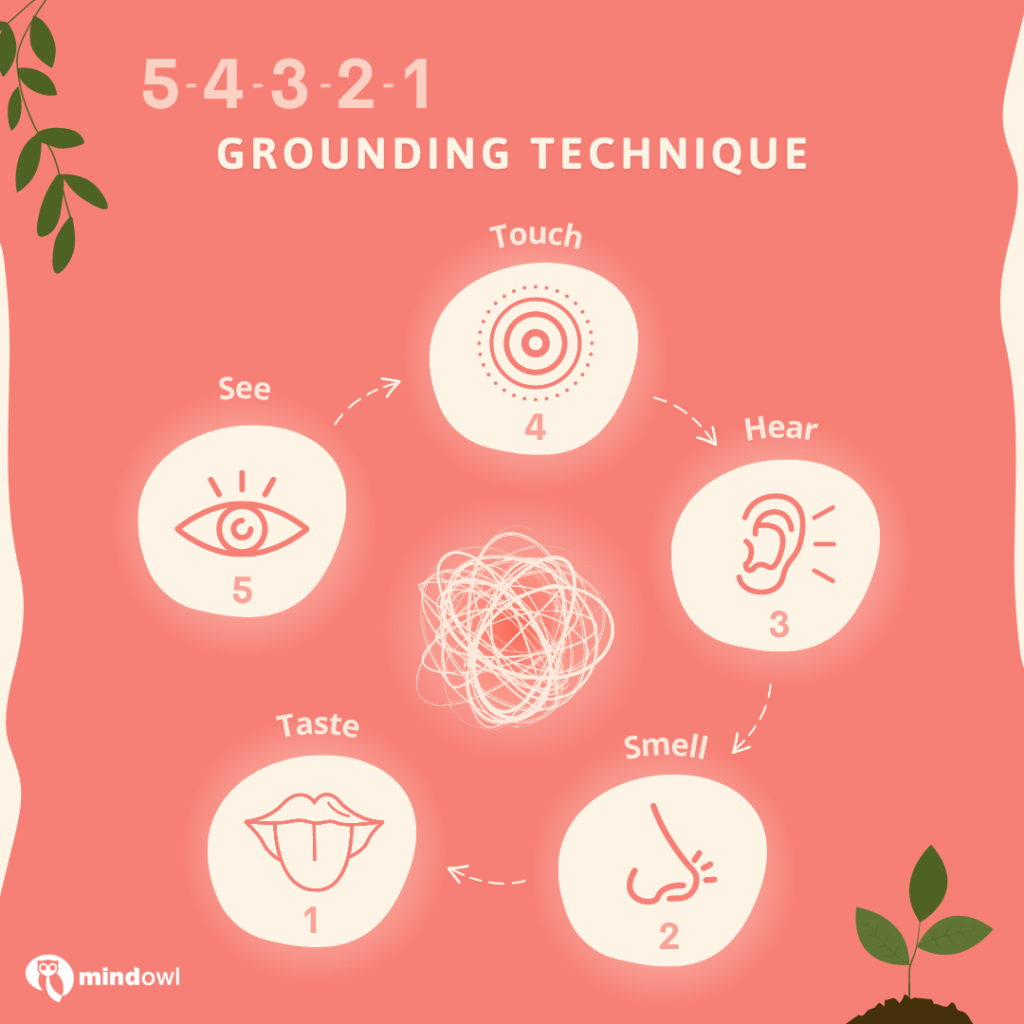No matter how successful our life may look or feel, if there’s something we are always going to struggle with it is the feeling of not being good enough. We might have excellent grades in school, a full-time job, have loving friends and a long-term partner but from time to time the idea that we’re not good enough can come to dominate our minds. “I’m not good enough for the job”, “I’m not attractive”, “I’m not very popular” or “I’m not enough for my girlfriend/boyfriend” are just some of the ways that this feeling can show up and have a huge impact on how we think, feel and behave.
The feeling of not being good enough can lead people to develop what is known as the “impostor syndrome”. With this people question all their achievements and convince themselves that they’re a fraud about to be caught out at any time. To make matters worse, we can also start thinking that everyone around us is so much better at what they do. Social media seems to just amplify that everyone else is having a better life than us and perhaps causing us to think“she has a much better job than me”, “Look at their family, they are perfect together; that’s nothing like ours”, “I will never be like him/her”. This is probably something you can relate to.
Our inner critic can be so loud that it can completely paralyse us. When this happens, we may begin to accept it as a true representation of reality, with the result that we stop doing what we truly care about. You can probably remember a time when you didn’t do something because your “not good enough” thoughts showed up.
If we are interested in developing ourselves and creating a meaningful life, we need to find ways to deal with these thoughts before they paralyse us and prevent us from doing what we truly value in life.
So what would be an effective way of dealing with those thoughts?
Recognise that old ways of dealing with it don’t work
When those thoughts showed up in the past what did you try to overcome them? Did you try suppressing them at all costs as if they were not there? Perhaps saying things, “get away”, “just stop”. You might have tried to avoid them by doing something that makes you feel better, to take your mind away for the unpleasantness. Binge eating and drinking, taking tranquillizers and watching TV mindlessly are common strategies that we all use. Or perhaps you tried to control the thoughts? Maybe using positive thinking, repeating affirmations, saying you are the most perfect person in the world, all in an attempt to counter those negative thoughts. Another common strategy is to avoid situations that relate to those thoughts. For example, if you think you are not good enough to find a partner, you might avoid meeting new people. Or if you think you are not good enough at your job, you might start avoiding some tasks and challenges that could lead to a promotion.
Just ask yourself: did it really work? Did those thoughts disappear? Are they no longer a problem? I would guess that they didn’t work for you, otherwise, you wouldn’t be reading this article. Imagine how much valuable time you wasted in this attempt to rid yourself of these feelings. How long did you spend trying to control, suppress or avoid them? What if you had used this time to build a life that has a purpose for you? Would things be different now?
Step one is to recognise that common strategies don’t work. Once you realise that, you can begin to develop new skills that do work. The alternative steps presented here are all backed-up by science using a mindfulness-based psychological approach called Acceptance and Commitment Therapy (ACT).
Don’t fight with them – Accept that they are common and natural
To change our relationship with these persistent thoughts, we need to understand that our minds tend to operate automatically and that we have much less control over our minds than we imagine. If you want to test this, just try to stop thinking for 30 seconds or so. How did you do? Did you stop thinking? Or did you notice that thoughts seemed to come out of nowhere?
To make things worse, we have what psychologists call “the negativity bias” that makes negative experiences more prominent than positives one. You can probably recall having a really good day, full of positive experiences but all that was needed to ruin it was one bad interaction with a work colleague or a message from your partner complaining about something you forgot. That bad interaction stayed with you for a long time. It’s understood now that our brains are hardwired like this to help us survive. In our early days as a species, paying attention to the negative was a matter of life and death. Remember it’s your mind trying to save you. And that is an important function of the human mind, but this mechanism can sometimes work against us.
If we can’t control our thoughts and they are almost automatic, what can we do?
What if, instead of trying to control, suppress and avoid them, you could just allow them to be? This is where acceptance comes in. When we accept our feelings, we simply allow them to be. We don’t fight against them and we don’t try to change them. Eventually, they will go away. An attitude of acceptance allows us to avoid spending precious time trying to control the uncontrollable and instead frees us to do what we care about despite the unwanted thoughts and feelings.

We don’t fight against them and we don’t try to change them. Eventually, they will go away.
Don’t buy into your thoughts
Once we realise that thoughts are automatic and tend to carry an element of negative bias, we can start changing our relationship with them. There is a key difference between having a thought and buying into a thought. We have thoughts all the time, every day. They could be reminders of things we have to do for a job, a plan for how to spend the weekend, something to buy at the supermarket or they could be about the world or ourselves. That’s quite easy to understand, but how can one not buy into a thought? Imagine that your mind is like a shop offering a great variety of products. Some of the products you like, some you don’t, some are important to you as they help you live your life better, some don’t add much to your life but you still feel persuaded to get them. Just like visiting a shop, you don’t get to choose what products they offer. You may dislike that they have a big section of something you don’t find useful or even hate but it’s most likely that you’ll just see that, acknowledge it and you move on to get what you think is important. You can choose to engage with the products you believe are useful to you.
You can do the same with your thoughts. You may have some thoughts that you don’t like, some you love and some that you are neutral about. In the same way that you choose products in a shop, you can choose which thoughts to pay attention to. So if you see a thought that you don’t like, just acknowledge it, saying something like “ oh that’s a negative thought” and move on to the what is really important to you.
Another useful way to disengage from those thoughts is by creating distance from them. You can do this by saying things like “My mind is saying that I’m an idiot” or “My mind is saying that I’m not good enough for the job”. By doing this we can create some distance from our thoughts and reduce its impacts on us. We start seeing that the mind has its own ideas that don’t depend much on our will. It’s almost as it’s coming from someone else. And like when thoughts come from other people, we can choose not to get engaged with them if we don’t find the discussion meaningful.
Be more present
Be more mindful, live in the moment, practise meditation. These are familiar words we often hear, and for good reason. Usually, when we have a negative thought about ourselves, those thoughts tend to be about something in the past. We can’t just stop ruminating about them thinking things like “why did I do that?” “Why am I so stupid?”. Or they could be about the future when we imagine the uncountable ways things can go wrong for us, thoughts like “I’m sure she will leave me, I’m not enough for her” or “I’ll screw things up again in tomorrow’s presentation”.
If we stop to focus on what’s really happening at the moment, we would see that this uncomfortable feeling is coming just from our minds. There’s nothing currently threatening us. Our minds are creating this anxiety. So it makes sense to develop the skill of slowly moving away from what’s happening inside of our minds to what’s actually happening at the moment.
One of the useful ways to bring you back to the present moment is to use short reminders or prompts to make your attention move outwards. A good one is to ask from time to time “What is happening right now?”. By doing that you will acknowledge what’s happening and will slowly train your attention to the now. For example, you can say “I’m having a thought about tomorrow’s presentation” “I’m sitting on my desk doing some work” “ I can hear people talking in the next room”.
A closely related reminder is to pay attention to your surroundings using the “5-4-3-2-1” tool. Looking for 5 things you can see, 4 things you can hear, 3 things you can touch, 2 you can smell and 1 you can taste. That will help you disengage with your thoughts and will make you connect to what’s happening around you instead of being lost in a spiral of thoughts.
Engage with what’s truly important to you
That leads us to the final point when dealing with thoughts that we are “not being good enough”. Whenever we engage with negative thoughts, we miss out on what’s truly important to us. The thoughts seem so real and powerful that we can get carried away by them and lose focus on our values and the kind of person we want to be.
Having a clear picture of what is meaningful to us and connecting with that is an effective way to reduce the impact of whatever our minds create. A good example of this would be of an athlete preparing for a prestigious competition. It’s almost certain that during preparation much doubt would emerge, making the athlete question her abilities. By connecting with the value of “courage” and “skilfulness”, this athlete would change her behaviour and focus on how important is for her to be brave in the face of difficulty and that she wants to be the kind of person that is always looking for ways to improve her skills. In the name of a “bigger cause”, her personal values, she can make space for any thoughts that may arrive. If you don’t have a clear picture of what your values are, ask yourself simple questions like “What’s really important” and “What do I want to stand for in life?”. Or, by imagining that you are having your 80th birthday party and that at this party people will make speeches about you. What would you like them to say about you and your qualities? What kind of qualities do you most admire? Once you have clarified your values, use them to guide your actions in the world. Stop from time to time and just ask: “Is what I am about to do connected to any of my values?” “Is this the kind of person I want to be? Even if we are not athletes we can have these examples in mind and ask ourselves “Am I willing to have these uncomfortable feelings in the name of something bigger?”
Written by:
Filipe Bastos
Founder of:
www.mindowl.org
MindOwl Founder – My own struggles in life have led me to this path of understanding the human condition. I graduated with a bachelor’s degree in philosophy before completing a master’s degree in psychology at Regent’s University London. I then completed a postgraduate diploma in philosophical counselling before being trained in ACT (Acceptance and commitment therapy).
I’ve spent the last eight years studying the encounter of meditative practices with modern psychology.




2 thoughts on “How to deal with the feeling of not being good enough”